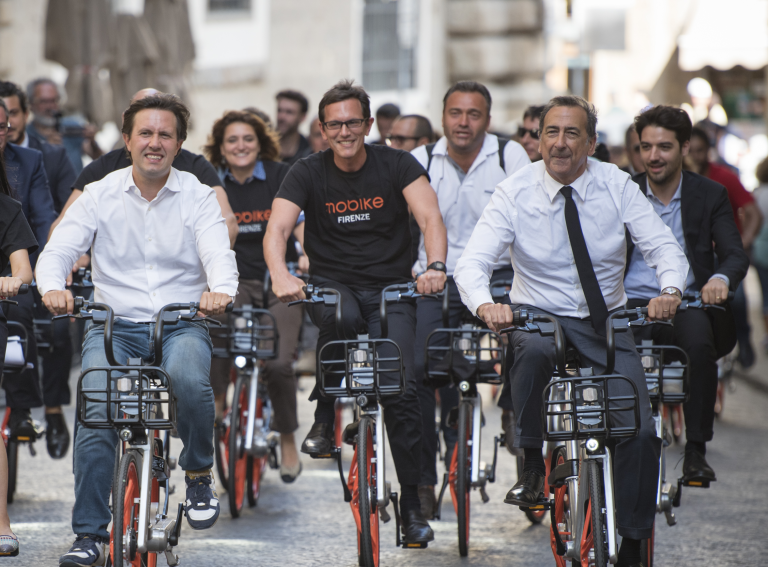This interview is part of a new Market Movers series powered by Zoba.
Name: Mattis Jaama
Position: Head of City Operations at Donkey Republic
Donkey Republic operations: Responsible for 20,000 Donkey bikes and e-bikes across 20 cities in Europe.
Background: Jaama started at Donkey Republic as a bike mechanic following his move to Denmark. He quickly rose up the ranks to Country Manager of Denmark and recently moved up to Head of City Operations to manage a team of eight in operations and all Donkey Republic markets across Europe.
Zag Daily: What would you say are some of Donkey Republic’s key strategies to overcome operational challenges?
MJ: “More than 90% of repairs are being done on the streets. Only in severe cases, or perhaps once a year, do we bring them into the workshop. One of our core goals is to ensure the bikes are easy to maintain and that repairs can be carried out quickly and efficiently. So based on the data, we have really tried to look at what is causing the most issues and then we solve these in the next generation of bikes.
“For example, we began using V brakes but whenever there is a slight curve in the wheel, it starts to eat away at the brake pads which requires more maintenance, so we switched to Rollerbrakes. With these brakes, even if the wheel is a little wobbly, it doesn’t really affect the rider’s experience because there’s nothing touching the wheel anymore which means less maintenance.”
Zag Daily: What impact does having a well-maintained fleet have on your business?
MJ: “That has an important impact from many different angles. Keeping the fleet in good condition provides a better experience for our users, which means happier riders and more returning customers. Keeping the bikes steadily in better shape also has a positive effect on the maintenance costs, as we can conduct the repairs faster, and in return achieve higher uptime and better availability of our fleet.”
Zag Daily: How different is the maintenance strategy for the incoming new shared e-cargo bike operations?
MJ: “From early next year, we will be adding our first fleet of shared pedal cargo bikes and e-cargos as part of a small pilot, which I hope we will be able to grow to many more cities over time. One of the biggest challenges from a maintenance perspective in managing a fleet of e-cargo bikes will be their size. While our existing bikes are moved around on the back of a bike trailer, that won’t be possible with cargo bikes. So we will have to ensure that most of the repairs can be done on the streets.”
Zag Daily: Can you give us an example of how statistics help to manage operations?
MJ: “Part of our day-to-day operations is making sure that the bikes are at the right location where they will be most utilised. We have developed some tools which are pretty good at predicting where the demand will be. But some city managers believed the tool may not work for all markets equally. So we we empowered managers and ran an experiment in the city of Ghent which was based on local market knowledge.
“Typically we increase supply based on demand, but in Ghent we tried something different and put more bikes out on the streets and the demand followed. This required local research and insight and proved to be a huge success. Utilisation jumped quickly once residents could see what was available. This is important to share because when you are working in operations you do need to not only rely on your tools, which can be helpful, but also get out on the streets and see for yourself where the hotspots might be.”
Zag Daily: Why are the markets so different?
MJ: “We really try to standardise processes, but every city has their own rules and cultural differences that come into play. In Germany, for instance, where the market has very specific rules about lights, a user will almost never pick up a bike with lights that for some reason are not functioning properly because they know they would be in trouble. In other markets, many wouldn’t even notice it.
“Then we have to adapt our strategies accordingly. That means that while our maintenance team spends maybe 30% of their time making sure that all lights are working in Berlin, in Copenhagen that could be 5%, for example.”
Zag Daily: And how do you expect to overcome these challenges as Head of City Operations?
MJ: “My goal is to make sure that what we have learned in Geneva does not have to be relearned in Amsterdam, for example, and what we have established in Copenhagen can also be rolled out everywhere else. It is really to align ourselves, taking the knowledge we have about what works in each city and sharing it across all markets to make our operations succeed.”





